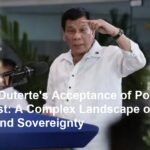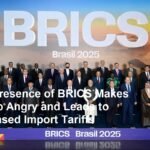SEOUL, SOUTH KOREA — South Korea’s National Election Commission (NEC) confirmed on Monday that the nation’s next presidential election will be held on June 3, 2025, marking a pivotal moment for Asia’s fourth-largest economy as it grapples with economic stagnation, demographic challenges, and escalating tensions with North Korea. The announcement follows months of speculation over the electoral timeline and sets the stage for a high-stakes contest that could reshape the country’s domestic and foreign policy trajectory.
A Nation at a Crossroads
The 2025 election will determine the successor to conservative President Yoon Suk Yeol, whose single five-year term ends in May 2027. However, with Yoon’s approval ratings hovering near 30% amid public discontent over inflation, housing affordability, and political polarization, analysts suggest the vote could serve as a referendum on his administration’s legacy. “This election isn’t just about choosing a new leader—it’s about defining South Korea’s identity in an era of geopolitical uncertainty,” said Dr. Park Ji-young, a political scientist at Seoul National University.
Key Contenders Emerge
Though official candidacies have yet to be declared, early polls point to a showdown between the ruling People Power Party (PPP) and the opposition Democratic Party (DP). The PPP is expected to nominate a figure aligned with Yoon’s hawkish stance on North Korea and pro-business reforms, with former Justice Minister Han Dong-hoon emerging as a frontrunner. The DP, meanwhile, is likely to rally behind its 2022 standard-bearer Lee Jae-myung, who narrowly lost to Yoon and has since positioned himself as a populist advocate for economic equality.
Third-party candidates could also disrupt the race. Ahn Cheol-soo, founder of the centrist People’s Party, has hinted at another bid, while progressive factions are courting figures like Lee Nak-yon, a former prime minister, to challenge the two-party duopoly.
Policy Debates Take Center Stage
With South Korea facing a record-low fertility rate (0.72 children per woman) and an aging population, demographic strategies will dominate campaign agendas. Both major parties have pledged to expand childcare subsidies and immigration reforms, though they diverge sharply on funding mechanisms.
Economic policy is another battleground. The PPP has vowed to double down on tax cuts for corporations and high earners to spur innovation, while the DP promises wealth redistribution measures, including higher taxes on the ultra-rich and a universal basic income pilot program.
On foreign policy, North Korea’s recent missile tests and deepening ties with Russia have forced candidates to address national security. The PPP advocates strengthening the U.S.-South Korea alliance and acquiring nuclear-powered submarines, whereas the DP favors reviving dialogue with Pyongyang and easing sanctions conditional on denuclearization progress.
Youth Vote: The Wild Card
Young voters, particularly those in their 20s and 30s, are expected to play a decisive role. Disillusioned by soaring home prices and precarious employment, this demographic has grown critical of both major parties. “Politicians keep talking about ‘future generations,’ but they’ve done nothing to fix the system trapping us in part-time jobs,” said Kim Min-ji, a 28-year-old office worker in Seoul.
Candidates are scrambling to address youth concerns, with proposals ranging from student debt forgiveness to subsidized tech startups. Social media platforms like TikTok and Instagram have become vital campaigning tools, with parties investing heavily in viral content targeting millennials and Gen Z.
Electoral Integrity in the Spotlight
The NEC has pledged to ensure a fair and secure election amid rising concerns over cyber interference. New measures include AI-driven monitoring of disinformation campaigns and paper ballot backups for all electronic voting machines. “We’ve learned from global examples of election meddling. South Korea’s democracy must remain resilient,” said NEC Chairperson Kwon Soon-il.
International Implications
The election outcome will reverberate beyond the Korean Peninsula. A PPP victory could bolster Washington’s efforts to counter China’s influence in the Indo-Pacific, while a DP win might signal a softer approach to Beijing and renewed engagement with North Korea. Regional allies like Japan and Taiwan are closely monitoring the race, as are global tech giants reliant on South Korea’s semiconductor industry.
A Test for Democracy
South Korea’s vibrant democracy, born from pro-democracy protests in the 1980s, faces fresh challenges. Political violence has surged in recent years, including a 2022 knife attack on Lee Jae-myung and online death threats against lawmakers. Civil society groups are urging candidates to prioritize national unity, with the Korean Women’s Association launching a #SafeElection campaign to combat gender-based harassment in politics.
What’s Next?
Campaigning will officially begin in May 2025, but behind-the-scenes maneuvering is already underway. Key policy debates will unfold during televised forums starting in January, with the first major party primaries scheduled for March.












